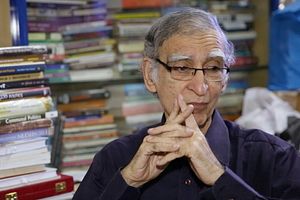Ram Puniyani quit as a professor at the Indian Institute of Technology in 2004 to devote himself to fostering communal harmony in India. The country has witnessed numerous incidents of communal violence, mostly against religious minorities, over the years. Communal tensions are often preceded and succeeded by narratives that seek to justify violence based on certain myths, or misconceptions, Puniyani says.
The 71-year-old activist has identified the five most prevalent and dangerous myths, which have led to massacres. Included in the long list of such brutalities are the killing of at least 2,000 Muslims in the western state of Gujarat in 2002, and massacre of more than 100 Christians and torching of thousands of homes in Odisha’s Kandhamal district in 2007 and 2008, according to civil rights groups. In one particularly grisly incident, Graham Stuart Staines, an Australian Christian worker, and his two underage children, 10-year-old Philip and Timothy, 6, were burned alive by a group of people while the three were sleeping in a station wagon in Manoharpur village in eastern Odisha state’s Keonjhar district in 1999.
Puniyani identifies the five harmful myths as: (1) Christians use force, fraudulent methods, and money to convert others; (2) Muslim kings destroyed Hindu temples to hurt the Hindu community; (3) Muslim kings converted Hindus through the use of the sword; (4) All terrorists are Muslims; (5) Muslims have four wives and their population rises faster than other communities. He debunks each of these myths in an interview with The Diplomat.

































